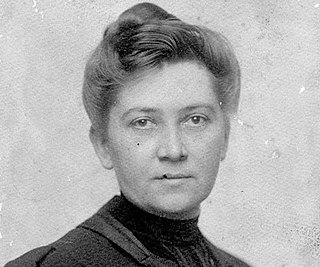A Quote by James Monroe
A free, virtuous, and enlightened people must know full well the great principles and causes upon which their happiness depends.
Related Quotes
One Dilbert Blog reader noted that current research shows that happiness causes success more than success causes happiness. That makes sense to me. There's plenty of research about people having a baseline of happiness that doesn't vary much with circumstances. And given that happy people are typically optimistic, energetic, and fun to work with, I can see how happiness would lead to success.
Nothing that is worth doing can be achieved in our lifetime; therefore we must be saved by hope. Nothing which is true or beautiful or good makes complete sense in any immediate context of history; therefore we must be saved by faith. Nothing we do, however virtuous, can be accomplished alone; therefore we must be saved by love. No virtuous act is quite as virtuous from the standpoint of our friend or foe as it is from our standpoint. Therefore we must be saved by the final form of love which is forgiveness.
In Tibet there is no marriage, and there is no jealousy, yet we know that marriage is a much higher state. The Tibetans have not known the wonderful enjoyment, the blessing of chastity, the happiness of having a chaste, virtuous wife, or a chaste, virtuous husband. These people cannot feel that. And similarly they do not feel the intense jealousy of the chaste wife or husband, or the misery caused by unfaithfulness on either side, with all the heart-burnings and sorrows which believers in chastity experience. On one side, the latter gain happiness, but on the other, they suffer misery too.
The pursuit of happiness is a great activity. One must be open and alive. It is the greatest feat man has to accomplish, and spirits must flow. There must be courage. There are no easy ruts to get into which lead to happiness. A man must become interesting to himself and must become actually expressive before he can be happy.
I think now happiness is a thing you practice like music until you have skill in striking the right notes on time. We have no vocation for it. And I had no practice, not a day when I was free from care and one great anxiety - and one must be free to be happy. I know that much about it by having missed it.
The belief that happiness has to be deserved has led to centuries of pain, guilt, and deception. So firmly have we clung to this single, illusory belief that we've almost forgotten the real truth about happiness. So busy are we trying to deserve happiness that we no longer have much time for ideas such as: Happiness is natural, happiness is a birthright, happiness is free, happiness is a choice, happiness is within, and happiness is being. The moment you believe that happiness has to be deserved, you must toil forevermore.

































